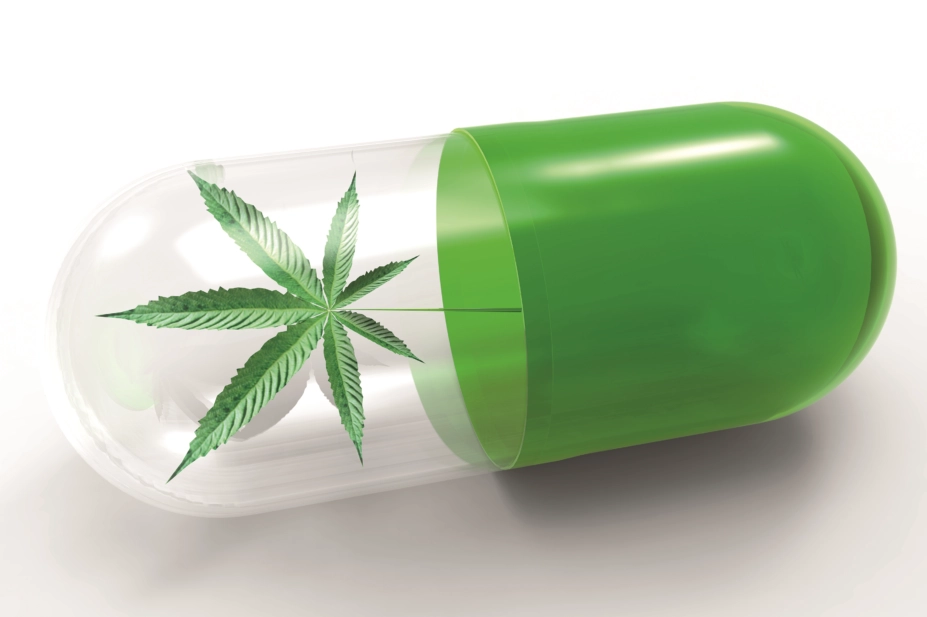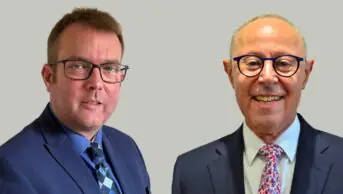
Shutterstock.com
Cannabis must be rescheduled for medicinal purposes, says the Royal Pharmaceutical Society (RPS), which has written to home secretary Sajid Javid to express support for moving cannabis from schedule 1 to 2. But the RPS has captured a zeitgeist and jumped on a bandwagon without brakes. And now, Dame Sally Davies, the chief medical officer for England, and a group of experts are rushing to lead the ‘legalisation of medicinal cannabis’. It almost seems like a done deal.
The RPS reasons that the move would give researchers greater freedom to investigate potential medicinal uses of cannabis — as anticonvulsants in epilepsy, and as anxiolytics in palliative care, for example[1]
— and to assess its effects through clinical trials. But the switch, which would make medical cannabis a controlled drug like morphine or fentanyl, could open the door to widespread prescribing.
To many community pharmacists, this might sound pretty exciting. Indeed, over 80% of us say we support the move. But I wonder if we fully appreciate what is going on, and I think we risk becoming beholden to an industry-in-waiting, the next big global business to emerge: Big Dope.
Before we join others on the bandwagon, the pharmacy profession must consider the three essential characteristics of the medicines and products we supply: quality, safety and efficacy.
Quality
There are many different varieties of Cannabis sativa, and the differences are down to varying amounts of the 70 or so cannabinoids they contain. Hemp — the variety mostly associated with fabric — has very little delta-9-tetrahydrocannabinol (THC), the dope molecule we associate with relaxed, doe-eyed simpletons sitting in a haze of smoke, at one with themselves and their benign world.
But if the hemp plant flowers, cannabidiol (CBD) is produced. 0.2%, 2% or 4% — it is a bit hit and miss. Under a European directive, only products with less than 0.2% THC can be sold on the UK market and classified as a food product[2]
. Cannabis oil flies off the shelves in health-food shops and the odd left-leaning pharmacy, but it is important to understand that the products could contain anything, and some could just be olive oil.
Products with different amounts of and types of cannabinoids are available with little standardisation. In June 2018, UK mother Charlotte Caldwell returned from the States with cannabis oil to treat her son Billy, who suffers from life-threatening epileptic seizures, but the product was confiscated at Heathrow Airport. Her son’s oil reportedly contains a 1:1 ratio of CBD and THC. With THC content above 0.2%, the product is classified as schedule 1 in the UK. The Caldwells’ case led government to consider whether cannabis products should be available for prescription in the UK. Without product standardisation, a patient cannot know what types and amounts of cannabinoids they are receiving — and this is unacceptable from a clinical perspective.
Efficacy
Claims of cannabis’ efficacy are difficult to substantiate because clinical trials must be performed on standardised products. Only now are such trials getting underway. Anecdotal reports or poorly designed trials are the basis for most claims of efficacy across a range of conditions, such as cancers, cognitive conditions, nausea and vomiting, autism, sleep disorders, glaucoma, multiple sclerosis, pain and inflammation, Lyme disease and epilepsy, to name just a few. Cannabis, it seems, has the potential to become the universal panacea[3]
. But remember that tobacco and alcohol were once lauded for their medicinal value before we came to know better.
For most conditions, it is fair to say that treatment with cannabis lacks evidence of efficacy, and, where efficacy has been scientifically demonstrated, the effect is weak and generally no better than currently available medicines[4]
,[5]
.
Safety
Psychotropic drugs — particularly marijuana — taken from early teenage years, seem to modify the brain’s development at a critical development stage, making individuals incapable of linking to others in a meaningful and empathic way[6]
. Marijuana reduces the brain’s ability to react positively to rewards, monetary or otherwise, and marijuana users with dampened reward responses can become more susceptible to addiction to cannabis or other drugs[7]
.
We must consider these patient safety issues before rushing into the lucrative cannabis market. CBD does not illicit a central nervous system effect — the effect that is so pronounced with THC — but it does interact with indigenous brain receptors and could have the potential to cause not only acute toxicity, but also long-term problems (3). These effects, and their impact on the developing and immature brain, are well-established in cannabis use, which has also been linked to schizophrenia. Yet, we have no way of understanding these risks with the information we already have.
Beware of a global super power
I fully support conducting the necessary research to establish the true medical benefits and risks of using medical cannabis. But I worry that the current excitement around medical cannabis is not about scholarly endeavour that is focused on patients and their conditions; I believe Big Dope has a strategy to be a serious global business, similar in size to Big Tobacco, Big Booze and, dare I say it, Big Pharma.
[1]
Jacobson R. Medical marijuana: how the evidence stacks up. 22 April 2014. Scientific American Available at: https://www.scientificamerican.com/article/medical-marijuana-how-the-evidence-stacks-up/ (accessed July 2018)
[2]
Hitchens P. The War We Never Fought. 2012. Bloomsbury Publishing: London
[3]
Booth M. Cannabis: A History. 2004. Bantam Books: London
[4]
Solis M. Cannabis for epilepsy: is there enough evidence of efficacy? 10 January 2017. The Pharmaceutical Journal Available at: https://www.pharmaceutical-journal.com/news-and-analysis/features/cannabis-for-epilepsy-is-there-enough-evidence-of-efficacy/20202138.article (accessed July 2018)
[5]
Koppel, BS, Brust JC, Fife T et al. Systematic review: efficacy and safety of medicinal marijuana in selected neurological disorders. Neurology 2014;82(17):1556–1563. doi: 10.1212/WNL.0000000000000363
[6]
Boydell R, Van Os J, Lambri M et al. Incidence of schizophrenia in south-east London between 1965 and 1997. Br J Psychiatry 2003;182:45–49. PMID: 12509317
[7]
Martz ME, Trucco EM, Cope LM et al. Association of marijuana use and blunted nucleus accumbens responsible reward anticipation. JAMA Psychiatry 2016;73(8):838–44. doi: 10.1001/jamapsychiatry.2016.1161
You may also be interested in

‘Are people believing this information?’: research raises concerns over online drug marketing

Dale and Appelbe’s Pharmacy and Medicines Law: covering ‘essential ground in the most highly regulated areas of healthcare’
